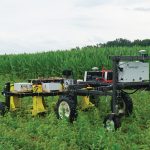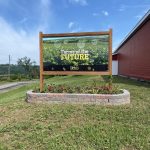Glacier FarmMedia – Research on virtual fences for livestock is gaining momentum in Western Canada. One technology being studied uses collars on animals that emit a series of audio warnings and, if need be, an electric pulse, when livestock approach an invisible boundary set with GPS coordinates. “The animals are actually able to get trained












